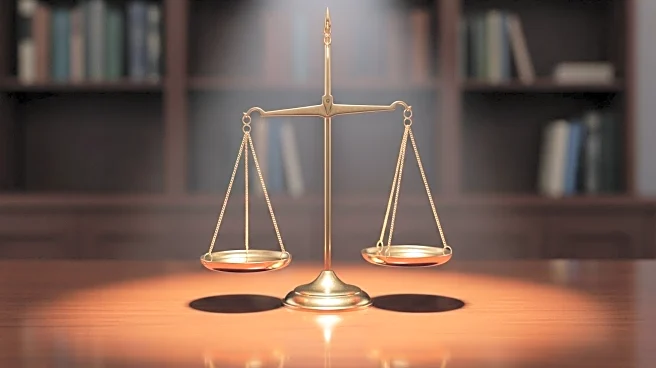What's Happening?
Felicia Branch, a law professor at the University of Arkansas Little Rock William H. Bowen School of Law, has been suspended following her comments on Facebook regarding the death of Charlie Kirk, a far-right activist. Her post, which criticized Kirk's stance on gun violence, was deemed inappropriate by several state officials, including Governor Sarah Huckabee Sanders and Lieutenant Governor Leslie Rutledge. Arkansas Attorney General Tim Griffin has called for Branch's termination, citing that while free speech is protected, it does not guarantee employment. The university is conducting an investigation into the matter, and Branch remains suspended with pay.
Why It's Important?
This incident highlights the ongoing tension between free speech and professional conduct within academic institutions. The suspension of Branch underscores the challenges educators face in expressing personal opinions, especially in politically charged environments. The case has sparked debate over the limits of free speech in academia and the potential repercussions for educators who express controversial viewpoints. It also reflects broader national trends where educators are increasingly scrutinized for their public statements, particularly in states with conservative leadership.
What's Next?
The University of Arkansas is expected to complete its investigation into Branch's comments, which may result in further disciplinary action. The outcome could set a precedent for how similar cases are handled in the future, influencing policies on faculty conduct and free speech. Additionally, the case may prompt discussions among academic institutions about balancing free expression with maintaining a respectful and inclusive environment.
Beyond the Headlines
The suspension of Branch may contribute to a chilling effect on academic freedom, where educators might self-censor to avoid potential backlash. This situation raises ethical questions about the role of educators in political discourse and the extent to which personal opinions should impact professional standing. It also highlights the cultural divide in the U.S., where political affiliations can significantly influence public perception and professional consequences.










